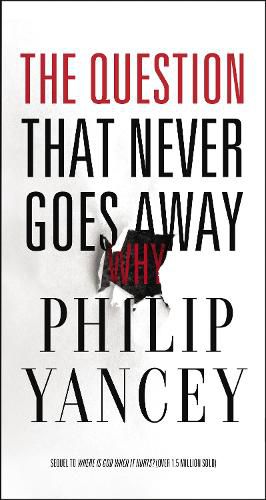Readings Newsletter
Become a Readings Member to make your shopping experience even easier.
Sign in or sign up for free!
You’re not far away from qualifying for FREE standard shipping within Australia
You’ve qualified for FREE standard shipping within Australia
The cart is loading…






This title is printed to order. This book may have been self-published. If so, we cannot guarantee the quality of the content. In the main most books will have gone through the editing process however some may not. We therefore suggest that you be aware of this before ordering this book. If in doubt check either the author or publisher’s details as we are unable to accept any returns unless they are faulty. Please contact us if you have any questions.
Why does God allow suffering?
In his classic book Where Is God When It Hurts, Philip Yancey gave us permission to doubt, reasons not to abandon faith, and practical ways to reach out to hurting people.
In this sequel, written 30 years later, Yancey revisits our cry of "Why, God?" in the wake of increased violence and natural disasters the world over. It's a cry that many of us take up with more urgency each year as we sit stunned by the calamities devastating our world, our communities, and our personal lives.
Acknowledging that Christians have not always responded to the problem of pain and grief with grace, Yancey helps us find meaning in the midst of the deepest suffering. The Question That Never Goes Away is a deep and personal reflection on the ways that suffering both challenges and affirms our faith and how we can respond to the existence of evil in a manner that doesn't dismiss it.
"In the face of suffering, words do not suffice. We need something more: the word made flesh, actual living proof that God has not abandoned us, that he shares in our distress," Yancy writes. We find this proof in Jesus, whose own story is one of suffering voluntarily accepted. No other religion has this model of God identifying so deeply and compassionately with humanity-and this changes how we see it and respond to it.
Timely and heartfelt, Philip Yancey has once again offered readers a powerful response to some of the toughest questions that will never leave us in this life.
$9.00 standard shipping within Australia
FREE standard shipping within Australia for orders over $100.00
Express & International shipping calculated at checkout
This title is printed to order. This book may have been self-published. If so, we cannot guarantee the quality of the content. In the main most books will have gone through the editing process however some may not. We therefore suggest that you be aware of this before ordering this book. If in doubt check either the author or publisher’s details as we are unable to accept any returns unless they are faulty. Please contact us if you have any questions.
Why does God allow suffering?
In his classic book Where Is God When It Hurts, Philip Yancey gave us permission to doubt, reasons not to abandon faith, and practical ways to reach out to hurting people.
In this sequel, written 30 years later, Yancey revisits our cry of "Why, God?" in the wake of increased violence and natural disasters the world over. It's a cry that many of us take up with more urgency each year as we sit stunned by the calamities devastating our world, our communities, and our personal lives.
Acknowledging that Christians have not always responded to the problem of pain and grief with grace, Yancey helps us find meaning in the midst of the deepest suffering. The Question That Never Goes Away is a deep and personal reflection on the ways that suffering both challenges and affirms our faith and how we can respond to the existence of evil in a manner that doesn't dismiss it.
"In the face of suffering, words do not suffice. We need something more: the word made flesh, actual living proof that God has not abandoned us, that he shares in our distress," Yancy writes. We find this proof in Jesus, whose own story is one of suffering voluntarily accepted. No other religion has this model of God identifying so deeply and compassionately with humanity-and this changes how we see it and respond to it.
Timely and heartfelt, Philip Yancey has once again offered readers a powerful response to some of the toughest questions that will never leave us in this life.